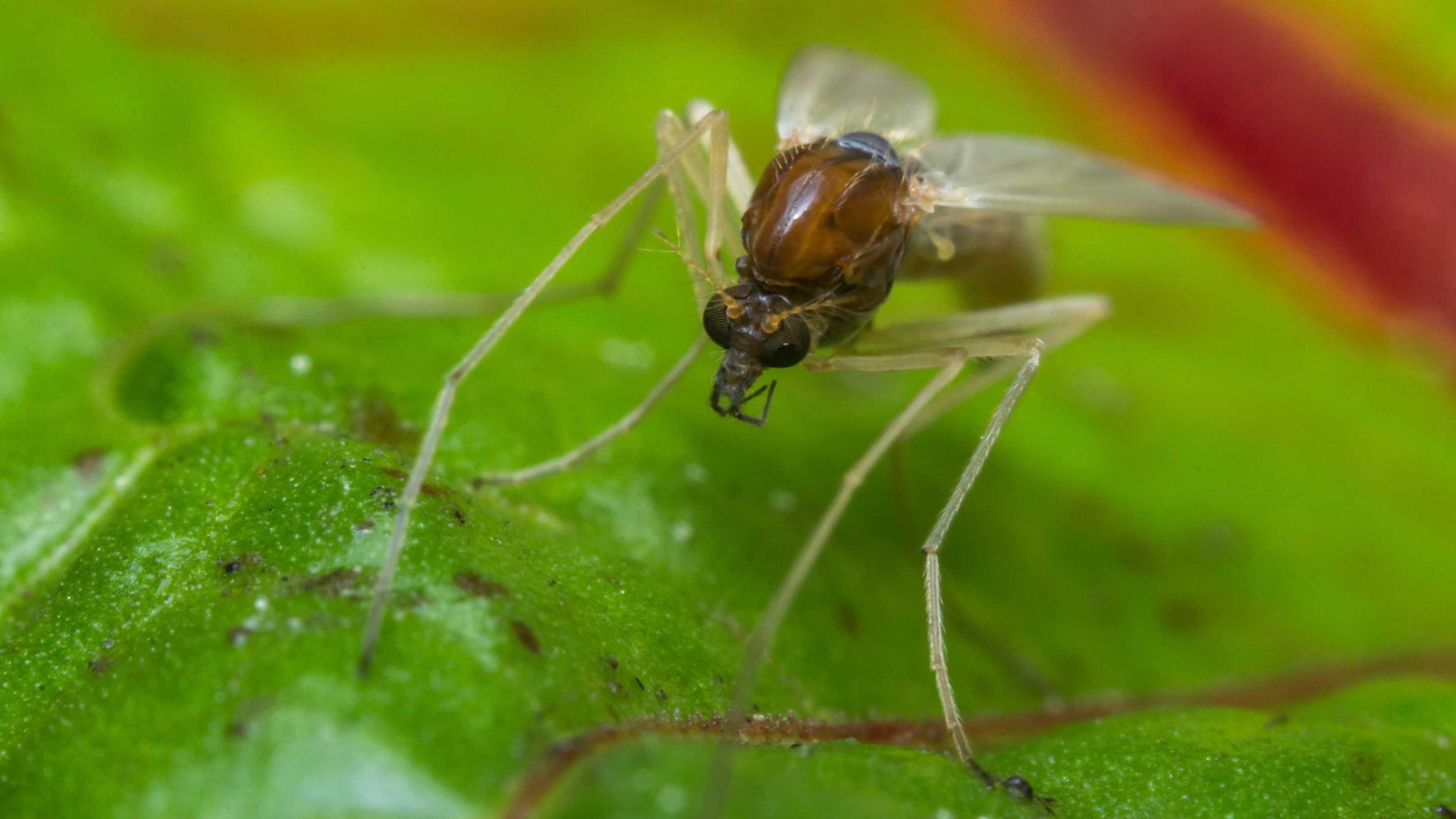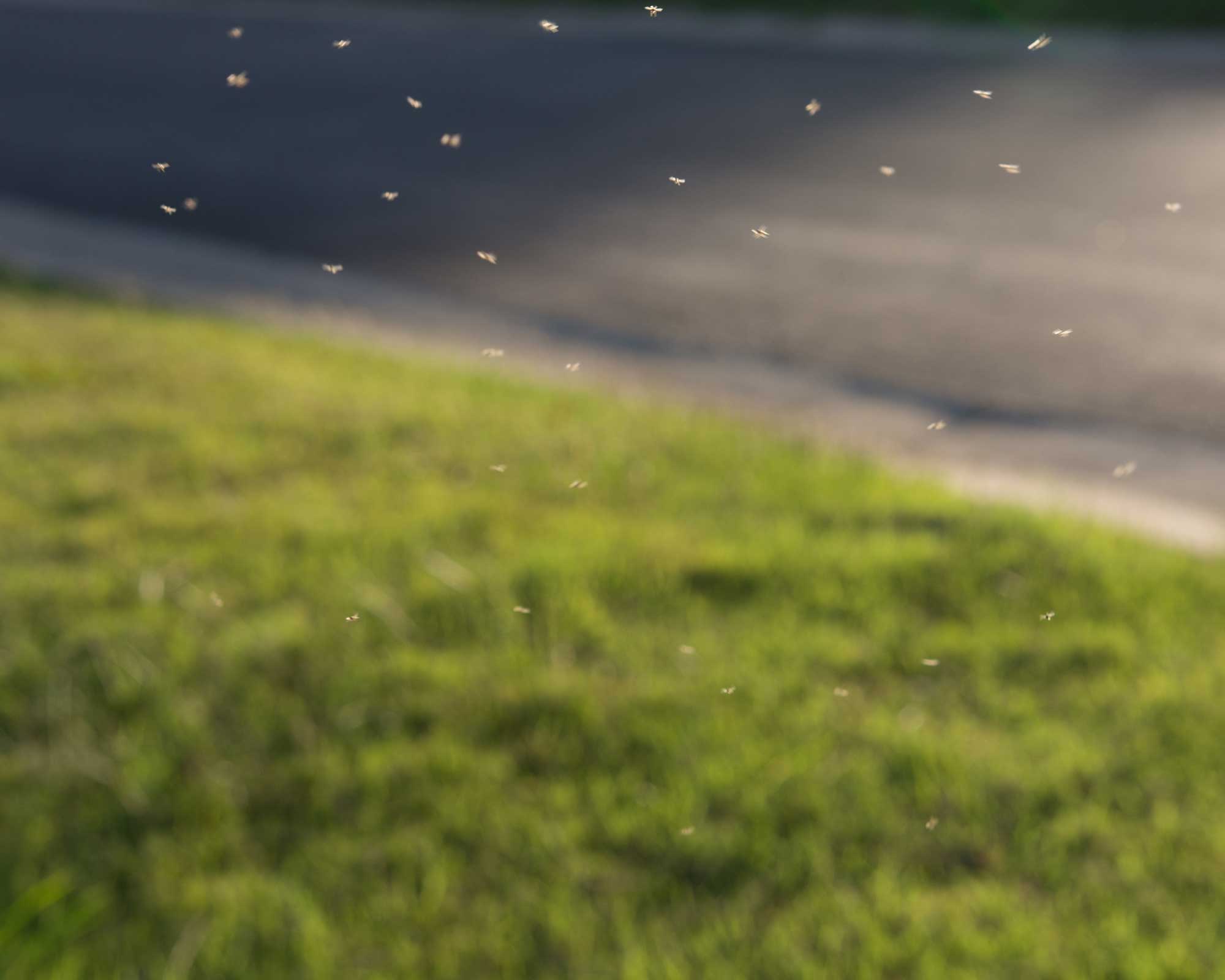I'm a pest control professional – here's how to get rid of no-see-ums for good
Learn from an expert on how to effectively repel these tiny attackers


Design expertise in your inbox – from inspiring decorating ideas and beautiful celebrity homes to practical gardening advice and shopping round-ups.
You are now subscribed
Your newsletter sign-up was successful
Want to add more newsletters?

Twice a week
Homes&Gardens
The ultimate interior design resource from the world's leading experts - discover inspiring decorating ideas, color scheming know-how, garden inspiration and shopping expertise.

Once a week
In The Loop from Next In Design
Members of the Next in Design Circle will receive In the Loop, our weekly email filled with trade news, names to know and spotlight moments. Together we’re building a brighter design future.

Twice a week
Cucina
Whether you’re passionate about hosting exquisite dinners, experimenting with culinary trends, or perfecting your kitchen's design with timeless elegance and innovative functionality, this newsletter is here to inspire
We all seek ways to cool off when the weather is warm, inevitably leading us toward a pool, lake, or the ocean. Summer is meant to be a time to relax and let your worries slip away.
But we’re not the only ones who are looking for warm weather and water. No-see-ums, often referred to as sand flies, are typically found in these warmer environments, especially near sources of water. There are various tried-and-true methods of keeping flies out of the house, but sand flies are particularly difficult due to their size, and can leave nasty bites.
The question remains: How do we go about protecting our home and garden against no-see-ums?
How to get rid of no-see-ums
First, we need to understand what no-see-ums are and what attracts them.

What are no-see-ums?
No-see-ums are tiny flying insects from the family Ceratopogonidae. These pests measure 1 to 3 millimeters in length and feed on the blood of various hosts, including humans and animals. And in doing so, they deliver a painful bite that can cause discomfort and itching.
No-see-ums have a life cycle that consists of egg, larva, pupa, and adult stages. Breeding occurs in moist environments, and they are most active during dawn and dusk.
What attracts no-see-ums?
Very similar to mosquitoes, no-see-ums are attracted to carbon dioxide, body heat, and body odor. This is an insect that relies heavily on its sense of smell.
Design expertise in your inbox – from inspiring decorating ideas and beautiful celebrity homes to practical gardening advice and shopping round-ups.
What makes deterring no-see-ums even harder than getting rid of mosquitoes, in most cases, is that they are almost impossible to see due to their size, and at times impossibly annoying to deal with. So, it’s important to have a comprehensive approach when taking on a no-see-um problem.
Preventative measures
Hands down the most effective and easiest way to protect your home and garden from no-see-ums is to never have them at all. But if you are amid an attack, there are various steps you can take.
- Mesh screens on doors, windows, and back porch areas are great for complete protection. When entertaining, keep food, water, and trash behind these screens to make your entertainment areas less favorable to these pests. Bedroom pest screens are highly effective, too. If installing screens, make sure you purchase from a reputable source that ensures it will keep out smaller pests like no-see-ums, such as these mesh screens at Phifer.
- Employing fans indoors and outdoors is an effective way to deter no-see-ums. These insects struggle with the airflow from fans, disrupting their flight and keeping them from biting. Placing fans near seating areas, patios, or porches forms a protective barrier, letting you enjoy outdoor spaces free from no-see-um annoyance while safeguarding your home and garden.
- Natural repellants: try home remedies to get rid of flies, such as essential oils like citronella, lemongrass, and eucalyptus emit potent scents that deter no-see-ums. Apply these oils to your skin or use them in diffusers and candles to create a protective barrier against these pesky insects.
- DEET repellents: DEET-based repellents, available at Amazon, provide a powerful line of defense against no-see-ums. DEET, or the chemical name 'N-Diethyl-meta-toluamide,' is a potent compound that creates a protective shield on your skin. It works by interfering with the insects' olfactory receptors, making it difficult for them to detect the scents that attract them to humans. By applying DEET repellents, you disrupt the insects' ability to locate you, effectively deterring them from landing and biting
How to remove no-see-ums
- One of the most effective methods is setting up no-see-um traps. These traps can be purchased commercially at Amazon or created at home by mashing up over-ripe bananas and placing them in an open container. Position the traps in areas where no-see-ums are most active, such as near standing water sources or shady, damp spots.
- When it comes to effectively protecting your home and garden from no-see-ums, using Insect Growth Regulators (IGRs) can provide a powerful solution. IGRs are a valuable tool in the battle against these tiny attackers, as they disrupt the growth and development of no-see-um larvae. By incorporating IGRs into your pest control strategy, you can break the life cycle of no-see-ums, significantly reducing their population. Applying IGRs in areas prone to no-see-um breeding, such as moist environments, can be particularly effective. If you're inexperienced with IGR application or live near bodies of water where these pests thrive, consider the expertise of a professional pest control company, licensed to operate strictly under statewide environmental regulations.
- Hiring a professional pest control service is a smart move to deal with no-see-ums. A qualified pest control company will practice the integrated pest management approach to battle invading pests. The IPM approach incorporates altering the physical environments, treating the source of the problem, treating all phases of the no-see-um lifecycle, and applying chemicals only as needed. A multi-angled approach is not only the most effective, but it also limits the treatments that are required.
As you work to create a haven within your home and garden, protecting against no-see-ums should be a part of your consideration, especially in beach communities. By understanding their behaviors and implementing effective strategies, you can enjoy the warmer seasons without the hassle of these pesky critters.

My name is David Blue, and I'm the Co-Founder and President of Mozzie Dome Pest Control. I have a background in entomology, as I studied at the University of Wisconsin. While in school, I realized I also have a passion for entrepreneurship. Ultimately, these interests collided when I became the president and Co-Founder of Mozzie Dome, where we are dedicated to finding the best pest control solutions for your home or business.